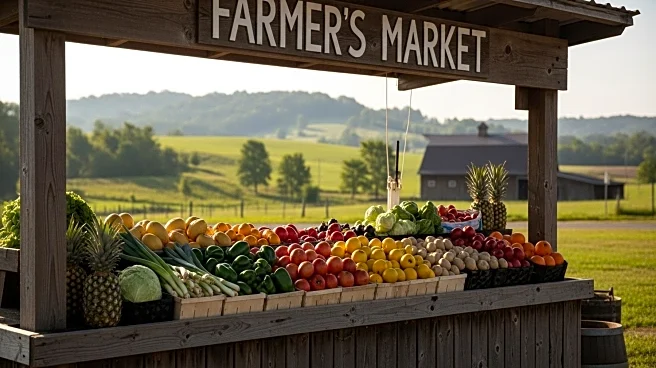What's Happening?
The United States Department of Agriculture (USDA) has emphasized the critical role small farms play in the US food system and rural economy. Defined as operations earning less than $350,000 in gross cash farm income annually, small farms often face high expenses, leaving them with modest net incomes. Despite these challenges, small farms contribute significantly to local economies by creating jobs and supporting community services. They represent 86% of US farms based on income and 97% are family-owned, underscoring their importance in sustaining rural communities.
Why It's Important?
Small farms are vital to the economic and social fabric of rural America, providing fresh food and preserving cultural traditions. Their contributions extend beyond agriculture, supporting local businesses, schools, and healthcare facilities. As rural areas face economic pressures, the sustainability of small farms is crucial for maintaining community vitality and ensuring food security. Recognizing their role can lead to targeted policies and support measures that enhance their viability and impact.
Beyond the Headlines
The emphasis on small farms highlights broader discussions about agricultural sustainability and rural development. Supporting small farms aligns with efforts to promote local food systems, reduce environmental impact, and foster community resilience. As policymakers and stakeholders consider the future of agriculture, small farms offer a model for sustainable practices and community engagement, contributing to long-term economic and social stability.









